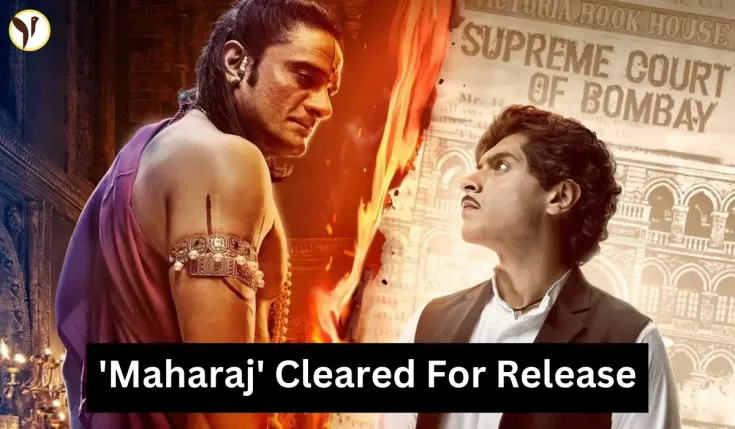In recent legal developments, the Gujarat High Court reversed its temporary ban on releasing the Netflix film 'Maharaj.' The decision, delivered by Justice Sangeeta K Vishen, follows a thorough review of the movie's content and its potential impact on religious sentiments.
Initially planned for release on June 14, the film faced opposition from a group of businessmen who raised concerns about its representation of events related to the 1862 Maharaj Libel Case. These concerns prompted the court to issue an interim stay order on June 13, preventing Netflix from streaming the movie.
The supporters argued that the film was likely to challenge the religious beliefs of the Pushtimargi community, a group within Vaishnavism. Their primary argument was that the movie might depict their religious figures or traditions incorrectly, leading to social tension and conflict.
Gujarat HC lifts stay on release of ‘Maharaj'.
— The Jaipur Dialogues (@JaipurDialogues) June 22, 2024
Can the courts now tell us when are we releasing 'Hamare Barah'? pic.twitter.com/ZY1UwJhNGl
However, after personally viewing the film, Justice Vishen concluded that it did not intend to harm or insult any particular community. She noted that 'Maharaj' was based on historical events surrounding the libel case and did not target any religious group with fraudulent intent.
Furthermore, the court emphasized that the film had already received certification from the Central Board for Film Certification (CBFC), indicating compliance with relevant guidelines and standards. This certification process involves a detailed examination of the movie's content to ensure it complies with legal and ethical norms.
In light of these considerations, the Gujarat High Court deemed it appropriate to lift the interim stay order and permit Netflix to release 'Maharaj' for streaming. This decision underscores the importance of balancing artistic expression with respect for cultural sensitivities and religious beliefs.
'Maharaj' director Siddharth P Malhotra shared an emotional note on social media expressing his feelings upon the film's OTT release. He shared the note stating how he feels 'the story needs to be told against all odds'.
— IndiaToday (@IndiaToday) June 22, 2024
Read more: https://t.co/NIRsAJYUXg#Maharaj… pic.twitter.com/YH9zLpbW3e
The controversy surrounding the film reflects broader debates about freedom of speech, artistic liberty, and the responsibility of filmmakers to handle sensitive subjects with care. While creative expression is valued and protected, it must not come at the expense of promoting social discord or hurting religious sentiments.
As 'Maharaj' prepares for its release on the streaming platform, it serves as a catalyst for discussions on the intersection of art, culture, and religion in modern society. The court's decision to lift the ban represents a victory for filmmakers and artists, confirming their right to tell stories rooted in history and truth while upholding principles of tolerance and mutual respect.
Lastly, it is crucial that all stakeholders, including filmmakers, regulators, and community leaders, engage in constructive dialogue and collaboration to address concerns related to artistic content in a manner that promotes unity and understanding among diverse communities.







